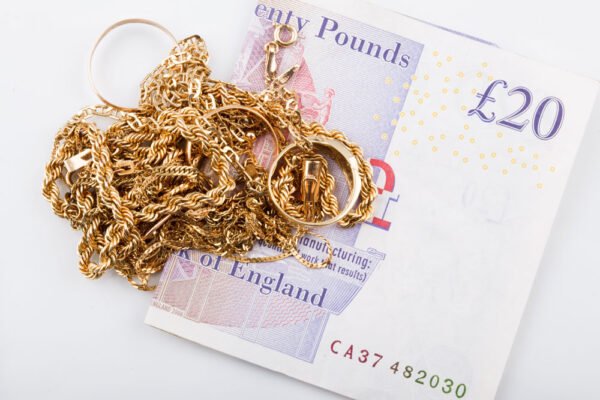
Demand For Pawnbroking on the Rise

Although pawnbroking has always remained a feature of the British high street, there can be little doubt that it went out of fashion for a period. Many in the industry put this down to the more widespread availability of consumer credit from the middle of the 1980s to the present day with it being quite usual for the average person to have one or more credit cards, for instance. However, pawnbroking has started to make a significant comeback. According to one of the UK’s leading pawnbrokers, there has been a 17 per cent hike in the amount of credit being sought by consumers in 2022 alone with over £10 million more being borrowed compared to the previous comparable period.
When you consider that this is just one pawnbroking firm’s figures, you will soon realise that demand for pawnbroking isn’t just on the rise but has gone through something of a sea change in recent years. In fact, many pawnbrokers say that it was the global financial crisis of 2008 that led to a change in thinking among many people who seek credit in the UK. As the banks and other high street retailers started to worry that they would not be able to pay each other back due to a seizing up of liquidity, so they began to lower their exposure to risk by refusing many people loans. In some cases, people who were otherwise creditworthy were turned down outright for loans while others were asked to pay at a much higher rate of interest than they might have expected before the crash.
As such, there is a whole generation of borrowers out there who have been much more comfortable using their portable assets – things like audio equipment, jewellery and watches – to secure credit than there used to be in the 1990s and early 2000s. Even more tellingly, the more recent cost of living crisis, brought on by the result of the UK’s changing trading relationship with Europe, the war in Ukraine and costs associated with the pandemic, has meant that more and more people who might never have visited a pawn shop before are now doing so. Little wonder, then, that pawnbrokers are seeing such a dramatic recent upturn in business even against a wider picture of more interest in this form of credit.
It should be noted, however, that the tightening of household finances isn’t the only reason why more people have been turning to the industry to meet their short-term borrowing needs. This is because many people trust pawnbrokers who have a high street presence in a way that they don’t necessarily when it comes to door-to-door lenders and even some more reputable establishments. According to one well-established pawnbroking firm, Bonds of Brentwood, lots of customers who use their services no longer want to enter into a loan arrangement with a high street lender because they worry about the consequences of not being able to meet all of the repayments. The same goes for loan sharks and other sources of credit.
Generally speaking, however, when people have put something up as collateral for their loan, they feel more comfortable. This tends to work in one of two ways. Firstly, they know they will be good for the loan even if they can’t repay it. In other words, the security they have offered means they won’t face the prospect of never being able to pay the loan back. Secondly, they frequently report that pawnbrokers give them better terms than other sources of credit precisely because the loan is secured against something of value. As such, pawnbrokers are seen as more reliable and more cost-effective when compared to other ways it is possible to borrow nowadays.
Another aspect of why more and more people are using the services of pawnbrokers to get by when there has been a long month or when an unplanned-for expense comes up is the undoubted rising cost of goods and services. In the past, if someone in work needed to have their car repaired so they could continue to earn a living, for example, then pawning a ring or a musical instrument for a month or so might not have been needed even a few years ago.
These days, though, more and more people with regular incomes are requiring credit for these sorts of situations when they might previously have dealt with them from savings. This is because a much higher proportion of household incomes is being given over to essentials nowadays, food, rent and energy being just three examples of where the most money is spent. It is highly likely, therefore, that even more people will turn to pawnbrokers for short-term lending when their energy bills start to go up this autumn.














































